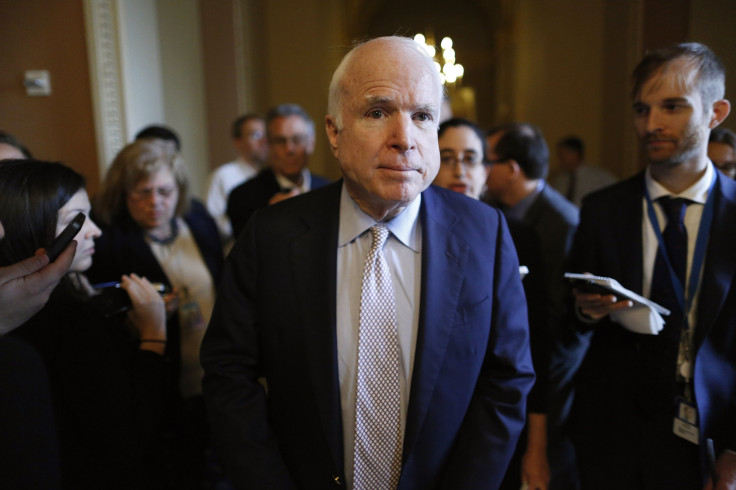Is Russia A Threat To America? Republicans McCain, Graham Split With Trump On US Security

President-elect Donald Trump has appeared comfortable with the idea of cozying up to Russia when he is sworn into office later this month but his party isn’t all on board with that approach. As the Senate prepares for confirmation hearings on the incoming president’s cabinet picks later this month, including the secretary of state post, tensions over alleged Russian cyber-attacks are simmering between some Republicans.
Arizona Sen. John McCain and South Carolina Sen. Lindsey Graham, both known for their devotion to American military interests, have found themselves at odds with an incoming president of their own party, the Wall Street Journal reported Tuesday. While Trump has chosen to push Exxon CEO Rex Tillerson — known to have close ties with Russian President Vladimir Putin — to run the State Department, the likes of McCain and Graham are sounding the alarm to try and explore the threats Russia poses to the United States.
McCain has scheduled a Senate hearing Thursday to examine foreign cyber threats like the alleged Russian hacking of the 2016 election. The Arizona senator, alongside Graham, has also pushed for harsher sanctions against Russia than the ones imposed by President Barack Obama following the election tampering. The Obama administration announced increased economic sanctions on Russia last month and expelled 35 Russian diplomats in the last few days of 2016.
“The retaliatory measures announced by the Obama Administration today are long overdue. But ultimately, they are a small price for Russia to pay for its brazen attack on American democracy,” the senators wrote in a press release last week. “We intend to lead the effort in the new Congress to impose stronger sanctions on Russia.”
McCain and Graham aren’t the only major figures in the U.S. government concerned about the threat of Russia. Following the 2014 invasion of Ukraine and the increased Russian military presence in the ongoing Syrian conflict, several high level military officials have indicated that the former Cold War foe is currently the biggest threat to American interests.
© Copyright IBTimes 2024. All rights reserved.






















